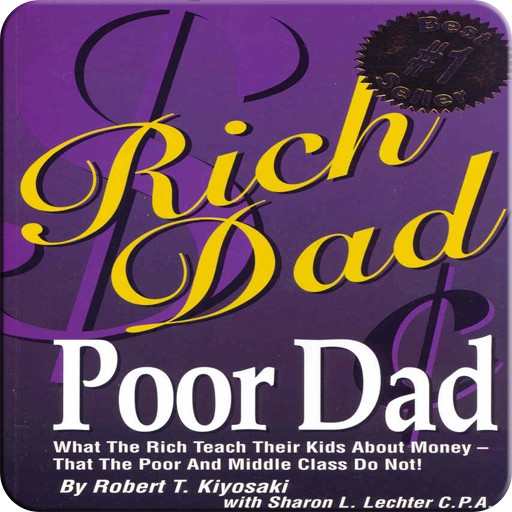Step 3. Choose friends carefully.
3.慎重地選擇朋友。
First of all, I do not choose my friends by their financial statements.
首先,我不會(huì)把理財(cái)狀況作為挑選朋友的標(biāo)準(zhǔn)。
I have friends who have actually taken a vow of poverty as well as friends who earn millions every year.
我既有窮困潦倒的朋友,也有每年都有數(shù)百萬(wàn)美元進(jìn)賬的朋友,
The point is that I learn from all of them.
因?yàn)槲蚁嘈拧叭诵校赜形規(guī)煛薄?/div>
I've noticed that my friends with money talk about money.
我會(huì)注意我有錢的朋友是如何談?wù)摻疱X的。

They're interested in the subject.
他們對(duì)這個(gè)話題感興趣。
So I learn from them, and they learn from me.
這樣,我通過(guò)交談向他們學(xué)習(xí),他們也向我學(xué)習(xí)。
My friends who are in dire straits financially do not like talking about money, business, or investing.
另一些朋友經(jīng)濟(jì)上很困難,他們不愛(ài)談?wù)摻疱X、生意或投資。
They often think it rude. So I also learn from my friends who struggle financially.
他們認(rèn)為這既粗俗又不明智。但我也能從他們那里學(xué)到許多知識(shí)。
I find out what not to do.
我會(huì)知道什么東西不可以去做。
Step 4. Master a formula and then learn a new one.
4.掌握一種模式,然后再學(xué)習(xí)一種新的模式。
In order to make bread, every baker follows a recipe, even if it's only held in their head.
面包師要按照一定的配方做面包,即使配方只是記在腦子里。
The same is true for making money.
掙錢也是一樣的道理,這也是金錢有時(shí)被稱做“面包圈”的原因。
When it comes to money, the masses generally have one basic formula they learned in school and that is: Work for money.
在錢的問(wèn)題上,大多數(shù)人一般只知道一個(gè)基本的掙錢模式,這個(gè)模式是他們從學(xué)校學(xué)來(lái)的,就是為了金錢工作。
The formula I see that is predominant in the world is that every day millions of people get up, and go to work, earn money, pay bills, balance checkbooks, buy some mutual funds, and go back to work.
在我看來(lái),這是一個(gè)統(tǒng)治著全世界的模式:每天千百萬(wàn)人起床、上班、掙錢、支付賬單、平衡支票簿、購(gòu)買共同基金,然后再去工作。
That is the basic formula, or recipe.
這是一個(gè)基本的模式或配方。
If you're tired of what you're doing, or you're not making enough, it's simply a case of changing the formula via which you make money.
如果你對(duì)自己所做的工作感到厭倦或是你掙的錢不夠多,那么很簡(jiǎn)單,改變你的掙錢模式吧。











